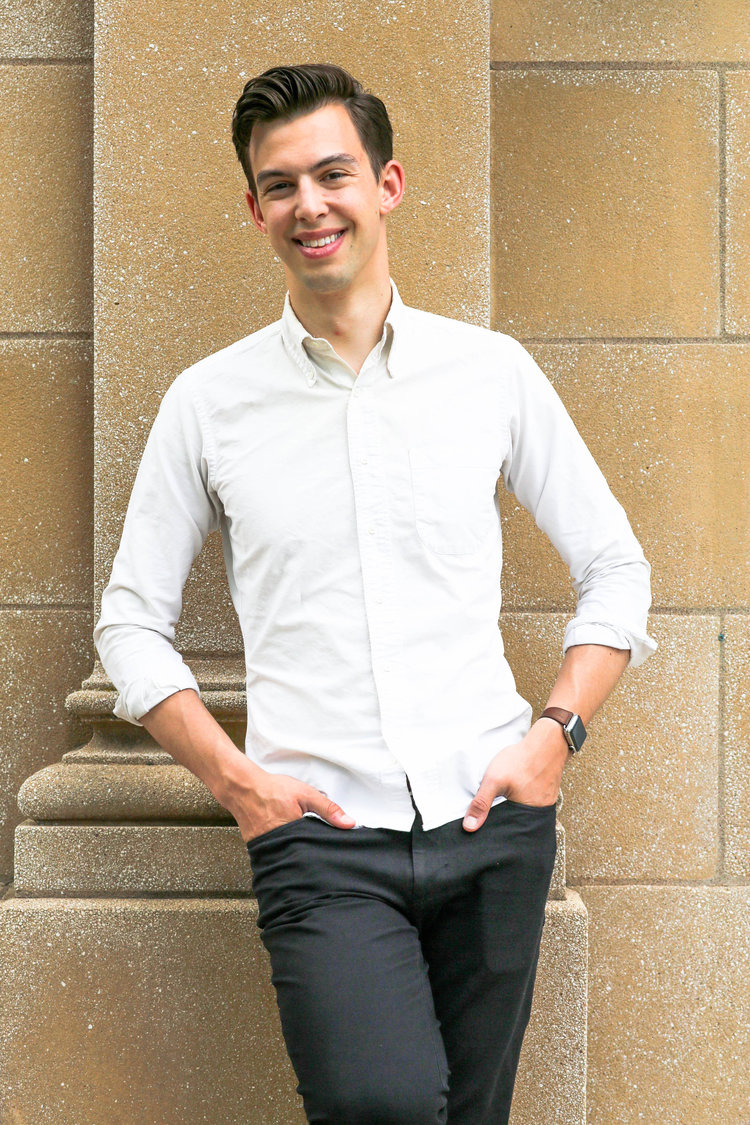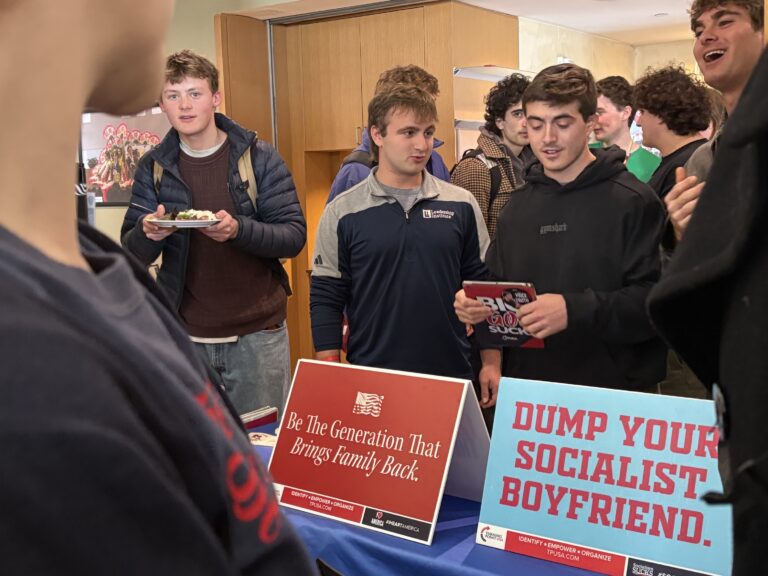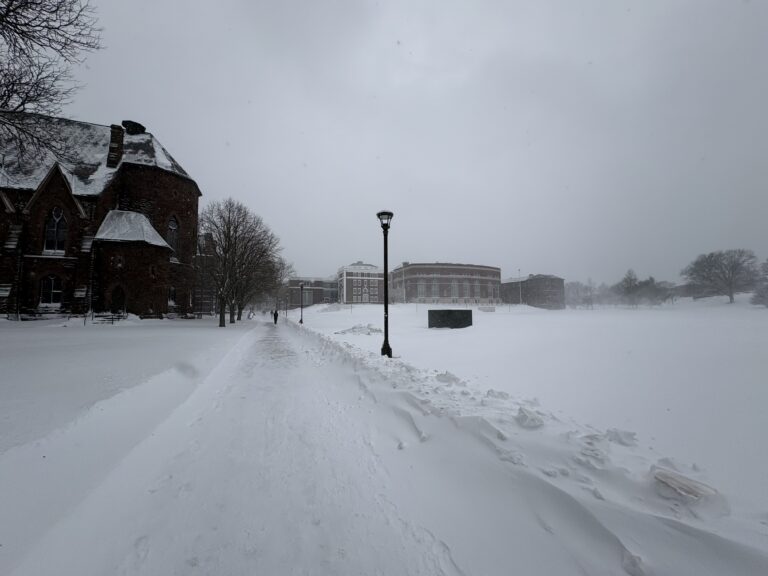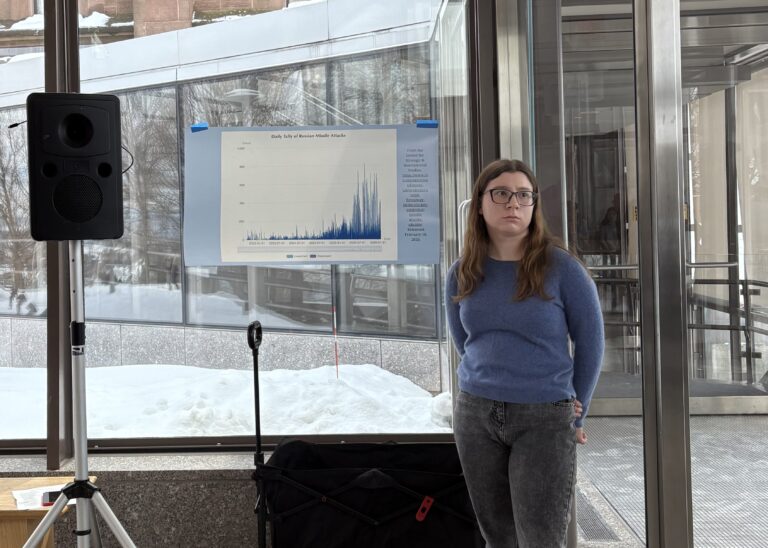Students, Faculty Respond to Florsheim ’14’s Win as Democratic Candidate for Middletown Mayor

Ben Florsheim ’14 will be on the ballot as the Democratic candidate in the Middletown mayoral general election on Nov. 3.
Last Tuesday, Sept. 10, Florsheim defeated three other candidates in the hotly contested primary election: Middletown Democratic Town Committee (DTC) nominee Mary Bartolotta, Director of Public Works Bill Russo, and Parking Director Geen Thazhampallath. Of the four candidates, Florsheim won the plurality of votes in all but one of Middletown’s voting precincts. Florsheim’s most decisive victory was in the voting district located on the University’s campus, Fayerweather, where he won over four times as many votes as any other candidate, according to data provided by Assistant Director of the Jewett Center Diana Martinez.
“My big takeaway from the results was that people are ready for a new approach to politics in our city, and the fact that Middletown is a great place doesn’t mean we say no to new voices and new ideas,” Florsheim wrote in an email to The Argus. “I really believed going into this that there’s nothing that’s wrong with Middletown that can’t be solved by what’s right with Middletown, and I think that the primary results showed that voters feel the same way.”
Florsheim’s grassroots campaign, which began in late May, has attracted wide support from some of Middletown’s most progressive voters, as well as many Wesleyan students, faculty, and staff members. Florsheim has commanded the youth vote throughout the campaign process, receiving endorsements from the Wesleyan Democrats, the Middletown Young Democrats, and the Connecticut College Democrats of America (CCDA). Like many young political hopefuls, Florsheim built his candidacy on the promise of new ideas and enthusiasm for the local community, which he supported through months of door-to-door canvassing. He was sold as the “Cure for the Common Middletown Politician,” in contrast to his older, more politically-established opponents.
After losing the DTC’s nomination by one vote to Common Councilwoman Mary Bartolotta, Florsheim petitioned for his place on the ballot by gathering signatures from local voters.
The attention surrounding both Florsheim’s campaign and the primary election in general led a number of students to cast their votes for him in Fayerweather on Tuesday. One of those students, Oriana Tannenbaum ’20, explained that she was compelled to vote due to the importance of fostering change on a local level.
“I think that voting in national elections is essential, but if we’re talking about the large-scale, sweeping progressive change that we want in the country, that isn’t going to happen just by voting in national elections every four years,” Tannenbaum said. “Therefore, it’s essential to vote in your local elections and to elect progressive officials, candidates, et cetera, throughout the country on a consistent basis, rather than waiting for some tide change.”
Martinez noted, however, that despite the general enthusiasm about Florsheim, student turnout was low compared to previous years.
“For students I talked to, some were uncomfortable about voting in a primary because they didn’t feel like they should be choosing the candidate, but they would vote in the general election because they don’t want the town to fall into the hands of Republicans,” Martinez said. “There’s a balance between voting in a primary and a general, but I would urge students to vote wherever they think their vote will make the most difference.”
Tannenbaum acknowledged the concern of other students who chose not to vote in the elections, but remained insistent on the importance of engaging in local politics.
“I don’t think this a perfect scenario by any means, with Wesleyan being very disconnected from Middletown but then supplanting itself into Middletown local politics,” Tannenbaum said. “However, I do think that the argument for why you should vote at Wesleyan when you’re here is that there’s always an excuse not to vote and no matter where you’re living when you’re a young person…. You can always say, ‘Oh, I’m not integrated enough into this community.’”
Another student, Polly Pierone ’20, had a different view of the dynamic between Wesleyan and the Middletown community.
“I was aware of the election, but I wasn’t really thinking about the logistics of voting,” Pierone said. “However, for myself, and a few of my friends as well, it is tricky navigating the role that we should have in Middletown politics. Is it more relevant for me to deal with the Wesleyan administration than it is the Middletown government? If I felt like the student population was having a big effect on elections, I would feel kind of funny about that, because most of our budget is private and most of what we experience is the community that is regulated by the school’s institutions rather than by the local government. I think the local government should be primarily concerned with Middletown not students, so I chose not to vote for that reason.”
Students will face yet another choice in November, when Florsheim will face Common Council Minority Leader and former Middletown mayor Sebastian N. Giuliano in the general election.
“Our plan moving forward is to bring the same message that resonated during the primary to a larger audience of voters, and to make the case that this is a moment to move forward, not backward,” Florsheim wrote. “Our strategy won’t change much; we know that we won the primary on the doors and on the issues, and the general election will be no different.”
Erin Hussey can be reached at ehussey@wesleyan.edu and on Twitter as @e_riss.
Luke Goldstein can be reached at lwgoldstein@wesleyan.edu.








Leave a Reply